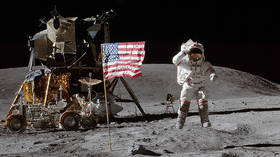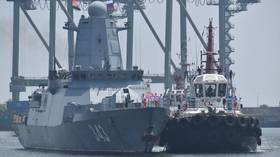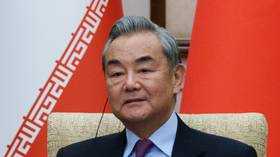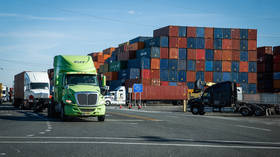US may use moon landing mission for ‘shady operations’ – Russian space agency chief

US plans to launch a manned mission to the moon isn’t just a political goal, but a cover for “secret operations,” according to Roscosmos head Dmitry Rogozin.
“Why do they want to get there again? What is the gain?” Rogozin asked in an interview with Russian media, during which he discussed NASA’s lunar program. “Like in previous decades, such actions are cover-ups for some shady operations. Space isn’t just for peaceful purposes.”
Also on rt.com New deep space ‘race’ has begun, says Russia's space chiefRogozin believes the US doesn’t have military interests on the moon, but US experts could conduct experiments in conditions of increased radiation and low gravity. Such experiments could be of “military interest,” he explained.
Earlier in March, US Vice President Mike Pence announced that the Trump administration had directed NASA to speed up the timeline for its already-planned moon landing in 2028 to 2024 in the face of competition from Russia and China.
In 2018, Roscosmos announced its space research program for the next decade, which included a program of lunar exploration. As part of the lunar mission, Moscow is considering placing at least two observatories on the moon. In January, Rogozin announced that the Luna-25 lander would be sent to the moon in 2021 to search for ice at its south pole, and will also test soft-landing technology.
Like this story? Share it with a friend!














